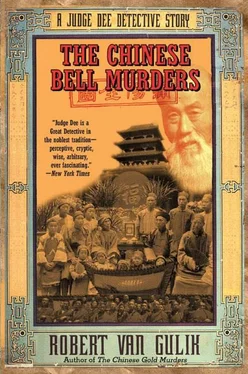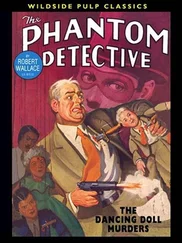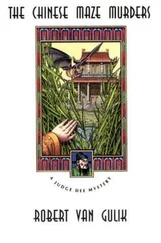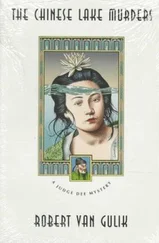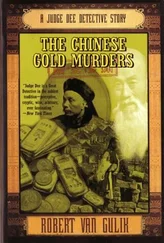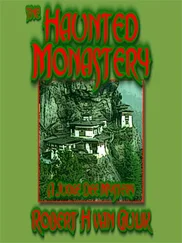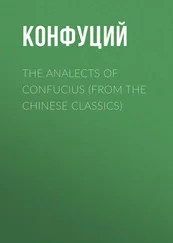The Judge Dee stories should not be taken as completely accurate depictions of life in imperial China. For one thing, they are anachronistic. The historical Judge Dee lived in the seventh century, but most of the Chinese stories about him were written down in the sixteenth to nineteenth centuries and reflect the standards and practices current then. Van Gulik based his adaptations on these later collections. Although he was a close student of the Ming and Ch'ing dynasties, the Dutch scholar's experiences with life in China were limited to a few brief visits and to several years' stay during the Second World War. He idealizes the China which existed before the empire had been shaken by the disruptive influences of the West and Japan. He sees imperial China most often from the viewpoint of the Confucian gentry for whose way of life he had respect and affection.
Still, these stories, for all their limitations and biases, provide relatively accurate portrayals of certain aspects of everyday life in imperial China. Van Gulik's personal observations were made in a pre-Communist era when the old ways were still followed in the villages and towns and when the magistrate was still dominant in local affairs. Highly sensitive to the stuff of everyday life, Van Gulik was not an ordinary observer of the Chinese scene. From his studies and his experience with the highest echelons of government he acquired qualifications for understanding traditional China that are no longer part of the equipment of specialists. No amount of reading in classical texts, gazeteers, dynastic histories, or diplomatic documents will by itself provide depth of understanding about the basic workings of life in traditional China. For the Westerner, direct translations of Chinese popular tales are often too foreign in nature and leave references to common matters too frequently unexplained for full comprehension. The insights and elucidations offered by Van Gulik provide the Westerner with a painless and pleasant introduction to premodern China and with an understanding of how different, yet sometimes how similar, are the peoples and societies of China and the West. And, besides, these are entertaining stories and should be appreciated simply for their own sake.
Donald F. Lach
"Necrology of R. H. van Gulik (1910-1967)." T'oung pao 54 (1968): 116-24. Unsigned but probably by A. F. P. Hulsewe. At the end of the article appears a comprehensive but incomplete bibliography of Van Gulik's works, including the Judge Dee books.
Bishop, John L. "Some Limitations of Chinese Fiction." Studies in Chinese Literature, Harvard-Yenching Institute Studies, no. 21, pp. 237-45. Cambridge, Mass., 1966.
Hayden, George A. "The Judge Pao Plays of the Yuan Dynasty." Ph.D. dissertation, Stanford University, 1972.
Lin Yu-tang. Lady Wu: A True Story. London, I937- (A historical biography in which Judge Dee (here written "Di") figures.
Prousek, J. "Researches into the Beginnings of the Chinese Popular Novel." Archiv Orientdlni (Prague) 11 (1939): 9I-I32-
Shih Chung-wen. The Golden Age of Chinese Drama: Yiian Tsa-chii. Princeton 1976. Note especially pp. 100-112, on social justice in the courtroom stories.
Starrett, Vincent. "Some Chinese Detective Stories." In Bookman's Holiday, pp. 3-26. New York, 1942.
Van Gulik, Robert H. "Bibliography of Dr. R. H. van Gulik." Reproduced typescript. Boston [ca. 1970]. Compiled for the benefit of the Boston University Libraries-Mugar Memorial Library "Robert van Gulik Collection."
See also the postscripts to the various Judge Dee books, in which Van Gulik discusses the traditional Chinese system of justice, his sources for the Dee stories, and his working methods.
A CONNOISSEUR HAS A STRANGE EXPERIENCE IN A CURIO SHOP; JUDGE DEE BEGINS HIS DUTIES AS MAGISTRATE OF POO-YANG
A judge must he as a father and mother to the people,
Cherishing the good and loyal, helping the sick and old.
Though meting out stern punishment to every criminal,
Prevention, not correction, should be his primary aim.
It is now six years since I withdrew from the prosperous tea firm inherited from my father, and settled down to peaceful retirement in our country villa outside the eastern city gate. There I at last found time to devote myself entirely to my favourite pastime, namely collecting material on the history of crime and detection.
Since under our present glorious Ming Dynasty peace and order prevail in the Empire and crimes and deeds of violence are of rare occurrence, I soon found that it was the past I had to turn to for data on mysterious misdeeds and their clever solution by perspicacious magistrates. Engaged in this absorbing study I had in the course of the years built up a remarkable collection of authentic documents relating to famous criminal cases, weapons actually employed in cruel murders, antique burglar tools and numerous other relics pertaining to the history of crime.
One of my most treasured items was a gavel, an oblong piece of blackwood, many centuries ago actually used by Judge Dee, our famous master-detective. On this gavel was engraved the poem quoted here above. The records state that Judge Dee always used this gavel when presiding at the tribunal so as to be constantly reminded of his solemn duties to the state and the people.
I quote the poem from memory, because I do not have that gavel any more. The horrifying experience I had this summer, about two months ago, made me abandon once and for all my criminological researches, and dispose of my entire collection of objects connected with gory misdeeds of the past. I have now transferred my interest to the collecting of celadon porcelain, and find this sedate hobby eminently suited to my fundamentally peace-loving disposition.
However, there is still one thing I must do before I can really settle down to a tranquil life. I must rid myself of all those haunting memories that today still come to disturb my sleep. To free myself of that recurring nightmare I must disclose the strange secrets that were revealed to me in so weird a manner, then and then only shall I be able to relegate to oblivion for ever the horrible experience that shocked me so deeply and brought me to the verge of insanity.
On this exceptionally fine autumn morning, sitting in my elegant garden pavilion and admiring the grace of my two favourite concubines as they tend the chrysanthemums with their slender hands-in these serene surroundings I at last dare to think back to what happened that fateful day.
It was late in the afternoon on the ninth day of the 8th moon-for ever that date shall remain engraved on my memory. It had been extremely hot at midday and later the weather became ever more sultry. I felt depressed and restless, and finally decided to go out in my palankeen. When my bearers asked me where to, on the spur of the moment I told them to take me to Liu's curio shop.
This shop that bears the lofty name of 'The Golden Dragon,' stands opposite the Temple of Confucius. Liu, the owner, is a greedy rascal, but he certainly knows his trade and often found me interesting curios relating to the history of crime and detection. I used to spend many a happy hour in his well-stocked shop.
When I had entered I only saw Liu's assistant. He told me that Liu was not feeling very well; he was upstairs, in the room where he keeps his more valuable items.
I found Liu there in a surly temper, complaining of a headache. He had closed the shutters in an attempt to keep out the stifling heat. In this semi-darkness the familiar room seemed strange and hostile to me, I thought of leaving then and there. But remembering the heat outside, I decided that I had better tarry awhile and have Liu show me a few things. Thus I sat down in the large arm-chair, vigorously fanning myself with my fan of crane-feathers.
Читать дальше
